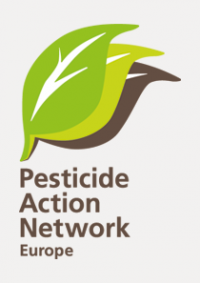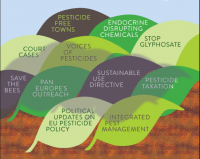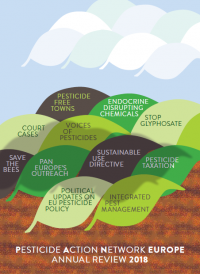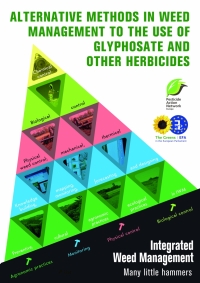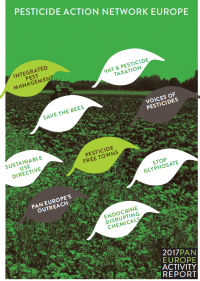Reports
Identification of endocrine disrupting pesticides: Trapped in a vicious circle
The current EU policy to test if a pesticide is an endocrine disruptor (altering the function of human and animal hormonal system) is far from being implemented. Endocrine disruption is a serious health concern that could lead to reproductive effects, cancer, brain damage and a range of other diseases. PAN Europe’s survey on the approval decisions of 33 pesticide active substances in Europe revealed that in 31 cases no relevant testing -specific to assess endocrine disruption- was requested from industry.
Carcinogens in our food: Pesticide metabolites with (un)known carcinogenic potential end up in our food
DG SANTE's prolongation policy
In 2008 EU Commission health service DG SANTE started its notorious program to allow 88 banned pesticides acces to the market again, the so-called “Resubmission". Many of the most toxic pesticides such as Metam-sodium, Malathion, Bromuconazole, Bifenthrin, Prochloraz, etc. were approved mainly on political grounds and because of the threat of massive industry-sponsored court cases.
"Moving towards agro-ecological practices in Europe" - PAN Europe's recommendations for UN Committee on Food Security's 46th General Assembly
White Paper: Ensuring a Higher Level of Protection from Pesticides in Europe
The White Paper, coordinated by Pesticide Action Network (PAN) Europe and produced by a group of 24 experts from the field of pesticides, risk assessment, human and environmental health identifies the many shortfalls in the safety assessment of pesticides in Europe that lead to dangerous substances being used in open spaces. The analysis also proposes concrete solutions on how to improve the pesticide risk assessment in Europe in line with the mandatory requirements of EU law.
Alternatives to Herbicide Use in Weed Management – The Case of Glyphosate
This second edition of the report on ‘alternative methods in weed management to the use of glyphosate and other herbicides’ has been published as a contribution to the ongoing discussions among some Member States, led by France, on phasing out glyphosate and promoting alternatives.
Activity Report 2017
This Annual Report outlines our work in 2017 to seriously reduce dependency on pesticides in Europe and to support safe and sustainable pest control methods. Enjoy reading!
Ríos hormonados: Contamination of Spanish Rivers with Pesticides
Extensive Presence of Endocrine Disrupting Pesticides in Spanish Rivers- SUMMARY in English
